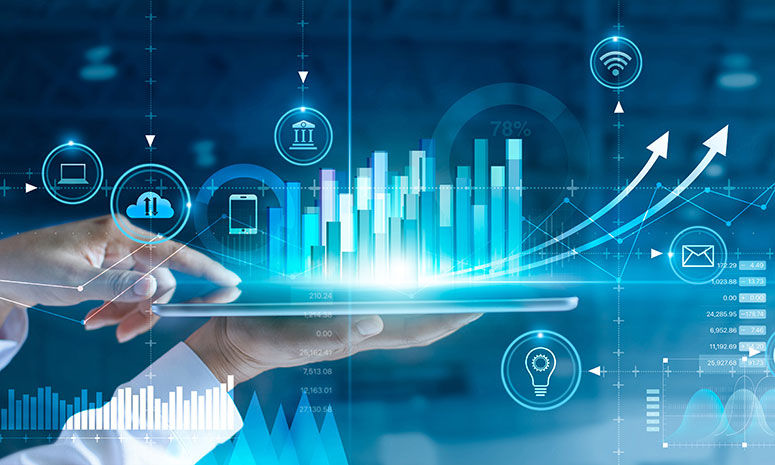Decoding Data Science: A Comprehensive Exploration of the Data-driven World
- Purva Yadav

- Apr 20, 2024
- 3 min read

In today's digitally-connected world, data stands as a pivotal force, fueling innovation, guiding decision-making, and shaping the trajectory of industries worldwide. At the core of this data revolution lies the dynamic field of data science—an interdisciplinary blend of statistics, mathematics, computer science, and domain expertise aimed at distilling insights and knowledge from intricate datasets. Embark on a comprehensive voyage as we delve into the intricacies of data science, unraveling its foundations, applications, and prospects for the future.
Understanding the Essence of Data Science
Data science serves as both an art and a science, devoted to transforming raw data into actionable insights. It encompasses a spectrum of techniques and methodologies, spanning from data collection and preprocessing to exploratory data analysis, machine learning, and predictive modeling. By leveraging sophisticated algorithms and statistical methods, data scientists uncover concealed patterns, trends, and correlations within data, empowering organizations to make informed decisions and drive strategic endeavors.
Laying the Groundwork: Fundamentals of Data Science
The journey commences with the intricate processes of data acquisition and preprocessing, where raw data undergoes transformation into a format conducive to analysis. Subsequently, exploratory data analysis (EDA) unfolds, enabling data scientists to scrutinize and visualize datasets to gain profound insights into their characteristics and underlying structures. Visualization tools like histograms, scatter plots, and heatmaps become instrumental in identifying trends, outliers, and interrelationships within the data.
Navigating the Landscape of Machine Learning
At the heart of data science lies machine learning—a foundational component offering the tools and techniques necessary for constructing predictive models and extracting insights from data. Supervised learning algorithms, including linear regression and decision trees, are deployed for tasks where the target variable is known, such as forecasting sales revenue or predicting customer churn. In contrast, unsupervised learning algorithms, like clustering and dimensionality reduction, find application in tasks where the target variable is unlabelled or unknown, such as customer segmentation or anomaly detection.
Exploring Advanced Data Science Techniques
In addition to conventional machine learning approaches, data scientists harness advanced methodologies such as natural language processing (NLP) and computer vision to analyze unstructured data types like text and images. NLP techniques enable computers to comprehend, interpret, and generate human language, unlocking avenues in sentiment analysis, language translation, and conversational AI. Similarly, computer vision methodologies empower machines to interpret visual data, spanning from image classification to object detection and facial recognition.
Key Skills for Data Scientists
Beyond technical proficiency, successful data scientists embody a diverse skill set comprising domain expertise, critical thinking, communication, and collaboration. They adeptly translate business challenges into analytical solutions, articulate findings cogently to stakeholders, and collaborate seamlessly with cross-functional teams to drive impactful outcomes. In a rapidly evolving field, continuous learning and staying abreast of emerging trends are imperative for staying ahead of the curve.
Applications Across Industries
The application spectrum of data science transcends industry boundaries, spanning healthcare, finance, retail, manufacturing, and beyond. In healthcare, data science drives insights into patient data, predicts disease outbreaks, and personalizes treatment plans. In finance, it powers algorithmic trading, risk management, and fraud detection. In retail, it facilitates customer segmentation, demand forecasting, and recommendation systems. And in manufacturing, it optimizes production processes, minimizes downtime, and enhances product quality.
Envisioning the Future of Data Science
As we gaze into the future, the horizons of data science are boundless. With the advent of big data, IoT, and AI, we stand on the precipice of an era where data will wield even greater influence in shaping our lives and enterprises. Emerging technologies such as quantum computing and blockchain hold the potential to unlock new vistas in data science, empowering us to tackle ever more intricate challenges and foster innovation at an unprecedented scale. Enrolling in a best Data Science Training Course in Delhi, Noida, Ghaziabad, Mumbai, Thane, Navi Mumbai,and other cities can equip individuals with the skills and knowledge needed to navigate this evolving landscape effectively.
In summation, data science emerges as a catalytic force, redefining industries, propelling innovation, and unfurling fresh vistas for growth and advancement. By harnessing the potency of data, organizations glean deeper insights into their operations, comprehend their clientele more profoundly, and make more enlightened decisions. As we continue our odyssey through the data-driven landscape, the possibilities are limitless, and the avenues for impactful change are infinite.



Comments